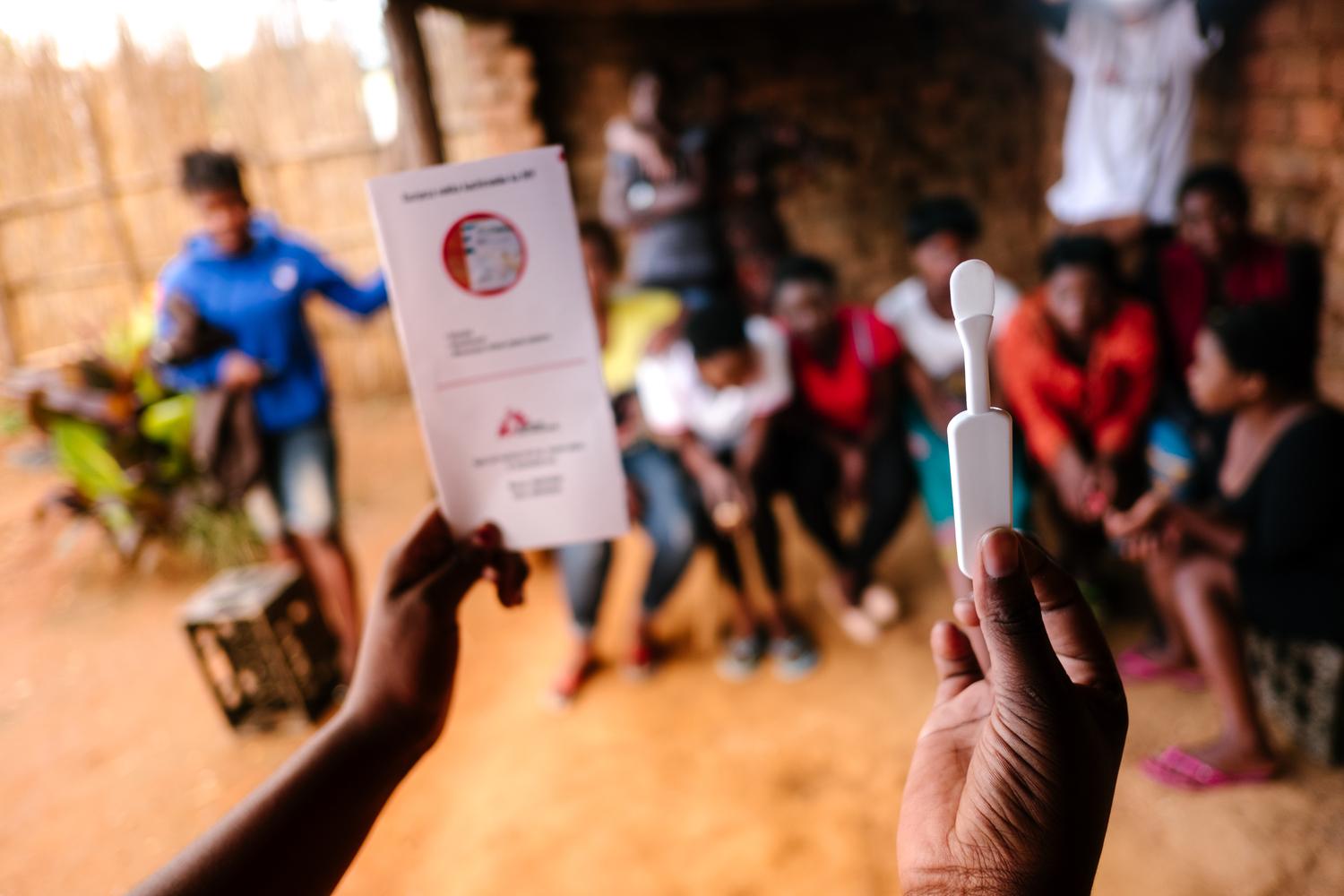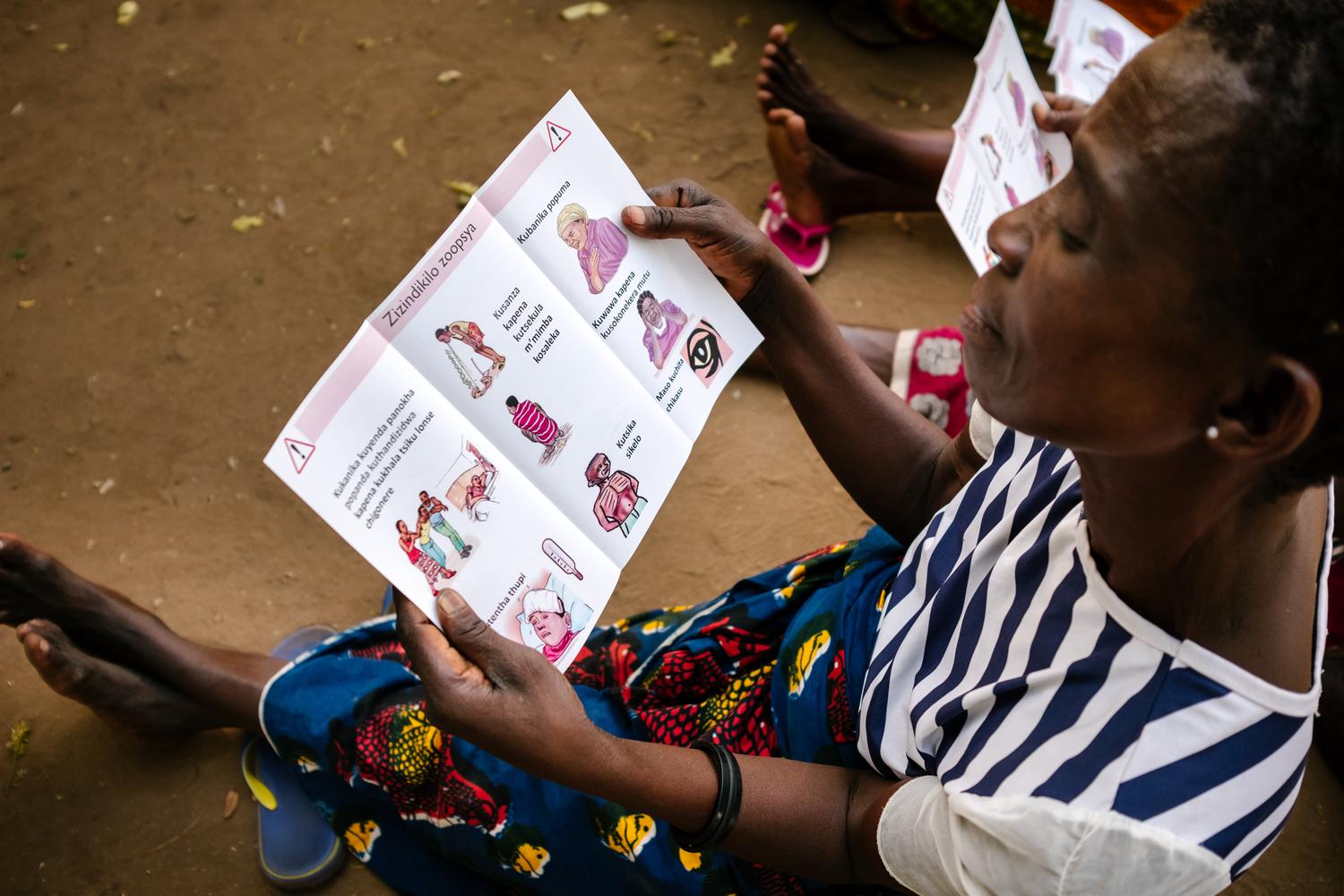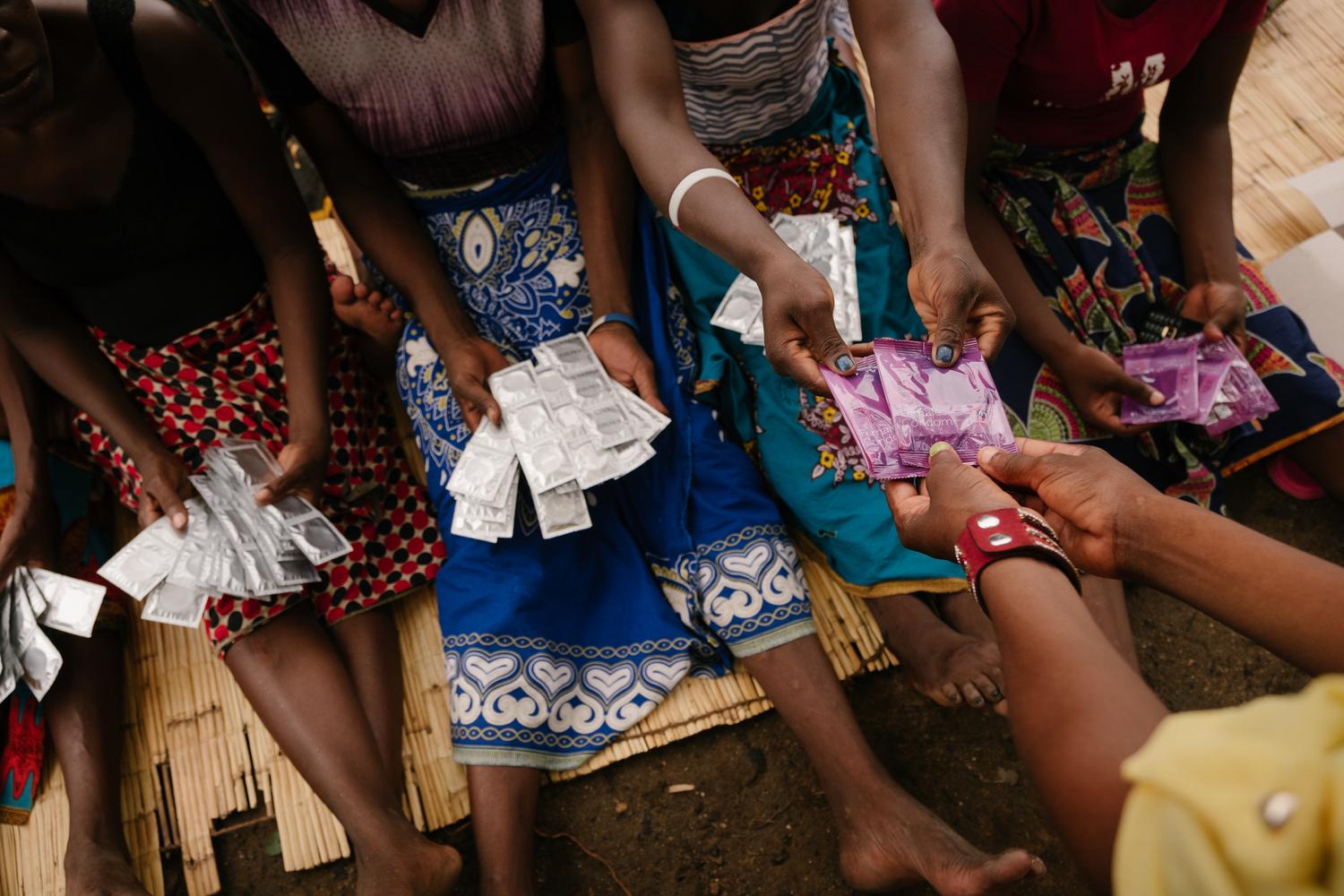
Self-Care
In 1 click, help us spread this information :
Have you ever used an app to track your period? Or used a puffer to prevent asthma? Or taken a home pregnancy test? Medical care doesn’t always have to happen in a clinic or hospital—in fact this can limit its reach.
Self-care means giving people the tools, the information and the choice to take a central role in their own health and healthcare. It's an approach that MSF is supporting for more and more people around the world, because we have seen how it can improve access and quality of healthcare.
This International Women’s Day we want to share what self-care can achieve to empower women and girls in crisis-affected communities, just like women anywhere else in the world.
WHAT IS SELF-CARE?
Self-care is a growing area of healthcare, although people have been doing their best to take care of themselves for centuries.
The World Health Organization (WHO) defines self-care as “the ability of individuals, families and communities to promote health, prevent disease, maintain health, and cope with illness and disability with or without the support of a health-care provider.” Simply put, self-care allows people to play an active role in their own health. As a medical-humanitarian organisation, our role is to entrust them and support them with the knowledge and skills to do so safely.
Self-care includes:
- Self-management of medication, treatment, examination, injection and administration
- Self-testing ranging from sampling and screening to diagnosis, collection and monitoring
- Self-awareness, spanning self-help, self-education, self-regulation, self-efficacy and self-determination.
WHY IS SELF-CARE IMPORTANT FOR WOMEN?
Globally, many women are still missing out on essential healthcare. Close to one in four women of reproductive age still has no access to modern contraception, to help her plan or limit her pregnancies. Just over half the people aged over 15 living with HIV around the world are women. Unsafe abortion remains a major cause of death in pregnant women globally as they are unable to access safer alternatives.
In many parts of the world women and girls face social, economic, logistical and other barriers to accessing healthcare, compounded by violence and stigma. The obstacles can be so great that people will not come and ask for care even if they need it. Self-care can help by providing healthcare options that are available more directly and more discreetly, at the individual’s own convenience, in their community or in their homes.
HOW DOES SELF-CARE IMPROVE HEALTHCARE?
Self-care puts the woman at the centre of her care. Through focusing on the woman’s individual needs, self-care support can improve the quality of care that she receives: care that is appropriate, respectful and built on trust.
Self-care can open up access to healthcare for people in remote locations, unstable contexts or areas with poor health infrastructure, such as the places where Médecins Sans Frontières runs projects. It can also improve access for people who prefer to manage their health within the privacy of their own home, which is relevant to many sexual and reproductive health issues that may be stigmatised or intimate.
For some women, self-care may be the only safe alternative, without which they may be forced to seek unsafe services, or give up hope of care altogether.
Overall, evidence-based self-care can improve people’s health, particularly for those with ongoing conditions. In the case of medication abortion to prevent unsafe abortion, self-care can be lifesaving.
HOW CAN WOMEN BE EMPOWERED THROUGH SELF-CARE?
Self-care empowers women because it gives them access to information and services that allow them to decide on what works best for them. Self-care is not about people having to do all of their own healthcare without support; it is about entrusting people to manage parts of their own healthcare if they choose to do so.
Self-care also allows women to help and take care of others in their community, by sharing reliable information peer-to-peer, delivering care as community health workers, and engaging with people within the same lived experience and health needs.
HOW IS MSF SUPPORTING SELF-CARE?
Self-care in women’s health spans a spectrum from accessing reliable health information to prevention and treatment of healthcare needs, with examples in our projects such as self-management of contraception, self-testing for HIV, or self-managed abortion. Whatever the self-care option, we will always ensure that women have access to a trained health worker if and when they want or need one, in person or remotely as suits their circumstances.
In MSF, we’re increasingly integrating self-care as part of a patient-centred approach to healthcare, but there is no one-size-fits-all approach. As the evidence base grows, we’re also continuing to trial different interventions, to understand what works, for whom.
WHERE ARE WE INTEGRATING SELF-CARE INTO MSF PROJECTS?
With the right support, self-care puts the power to stay healthy in women’s hands. Let’s give women the choice, no matter where they live.

